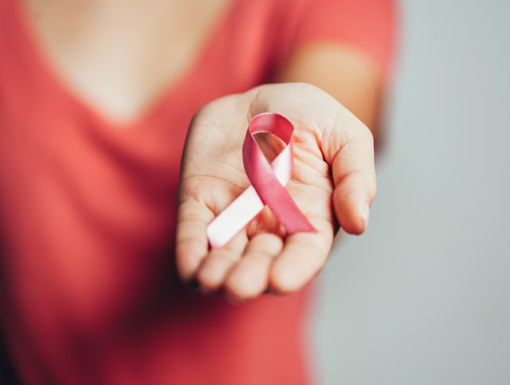
5 Cancer Screenings All Women Should Know About
Cancer screenings save hundreds of thousands of lives. In addition to healthy behaviors like wearing sunscreen, eating well and avoiding tobacco, regular cancer screenings are one of our best cancer prevention tools.
Some cancers can be found early, which allows doctors to treat them before they have grown or spread to other parts of the body. Some cancers are also easier to treat when they are detected early on. Although you may not be experiencing any symptoms or observable changes in the quality of your health, it is still important to get screened regularly for certain forms of cancer.
According to the American Cancer Society, these are the five cancer screenings that every woman should have.
Breast Cancer
Decades of research have shown that women who have regular breast cancer screenings, or mammograms, have a greater chance of catching breast cancer early and are less likely to need intensive treatment like breast removal surgery (mastectomy) or chemotherapy. The American Cancer Society Breast Cancer Screening Guideline encourages women who are at average risk for breast cancer to initiate mammographic screening between ages 40 to 45 and to begin undergoing annual mammograms by age 45. After age 55, women can change to having mammograms every other year depending on their level of risk.
Women who are 40 or older should discuss their screening needs and schedule with their doctor, including whether less than yearly mammograms can be considered. Some women may want to be screened earlier depending on family or medical history. Some healthcare providers even have the option to have a mammogram in 3D.
Women should also do routine self-exams at home to familiarize themselves with how their breasts look and feel. Always let your healthcare provider know if you ever notice any change in your breast.
Colon Cancer
Excluding skin cancers, colorectal cancer (a cancer of the colon or rectum) is the third most common cancer diagnosed in both men and women in the U.S. It is the second cause of cancer-related deaths nationwide, and the lifetime risk for developing colon cancer is roughly 1 in 25 for women.
Women should begin getting screenings for colon cancer at age 45 or earlier depending on their family and medical history. There are many different tests that can detect colon and rectal cancer including at-home options.
The most familiar preventative method, a colonoscopy, is a procedure that enables a physician to directly image and examine the entire colon. It is effective in the diagnosis and evaluation of not only colon cancer but also various gastrointestinal disorders including colon polyps, inflammatory bowel disease, bleeding or change in bowel habits, abnormal x-rays or CT scans and more. Your doctor may also recommend a non-procedural testing option like a fecal immunochemical test or Cologuard.
These tests are looking for polyps, which can turn into cancer. Some of the tests include a stool DNA test, colonoscopy or fecal occult blood test (FOBT) and fecal immunochemical test (FIT). You should speak with your doctor to discuss which test would be best for you.
Cervical Cancer
The cervix is the lower part of the uterus. Women should begin screening for cervical cancer at age 21. You should also have a Pap test every three to five years and an HPV test. This can help find cervical cell changes before they become cancer.
If you have had the HPV vaccine, you should still have routine tests. Women with a higher risk of cervical cancer may need to be screened more often. Most women will not have any symptoms, so it is important to have routine screenings.
Early detection is key in the fight against cancer. Learn more and schedule your screenings at https://digital.ochsner.org/cancer-screenings/
Lung Cancer
Any woman ages 55 to 75 that is currently a smoker or was a heavy smoker should speak with their doctor about if a CT scan is right for them. There are usually no symptoms from lung cancer until after the cancer has advanced. Lung cancer is often difficult to treat because by the time you notice the symptoms, it has often spread to other areas of the body. This is one of the reasons that lung cancer causes the most cancer deaths worldwide, and why it is so important to get screened so it can be caught early.
Skin Cancer
You should always be familiar with all moles and spots on your skin. If you notice any changes, you should talk with your doctor right away. Patients should be familiar with their family medical history in order to determine if they are at an increased risk of developing skin cancer. Remember to have your skin examined during annual check-ups or well-woman visits.
Skin cancer can develop anywhere on the body. When checking yourself, take note of all the spots on your body: moles, freckles and age spots. If you find unusual spots, the next step is to set up a skin cancer screening with a dermatologist. Your doctor may choose to biopsy an abnormal area by removing part of it in the office and having it tested for cancer. When caught and removed early, skin cancers are almost always curable.
Editor's note: This article was originally published on July 5th, 2017.



